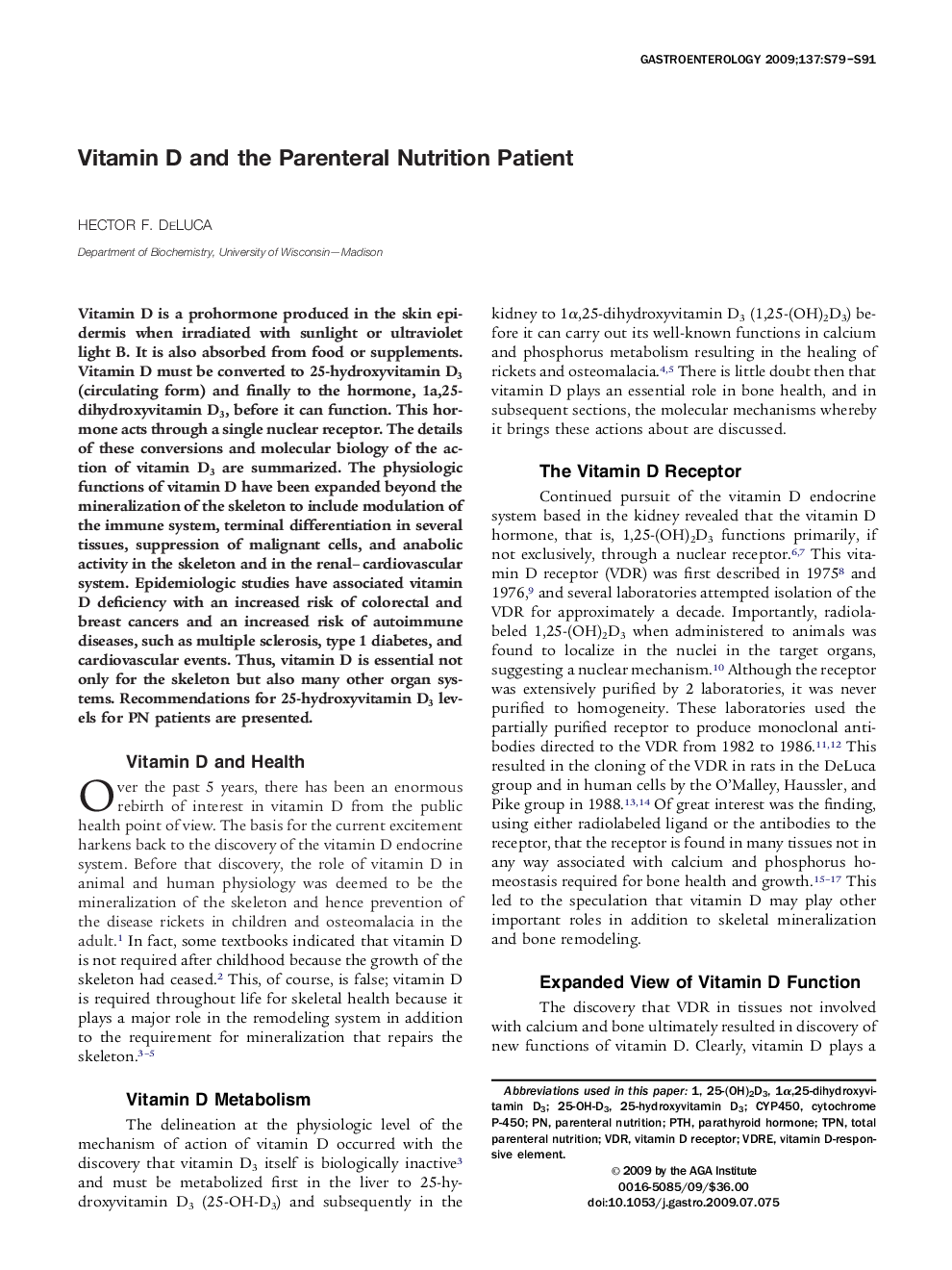| Article ID | Journal | Published Year | Pages | File Type |
|---|---|---|---|---|
| 3298579 | Gastroenterology | 2009 | 13 Pages |
Vitamin D is a prohormone produced in the skin epidermis when irradiated with sunlight or ultraviolet light B. It is also absorbed from food or supplements. Vitamin D must be converted to 25-hydroxyvitamin D3 (circulating form) and finally to the hormone, 1a,25-dihydroxyvitamin D3, before it can function. This hormone acts through a single nuclear receptor. The details of these conversions and molecular biology of the action of vitamin D3 are summarized. The physiologic functions of vitamin D have been expanded beyond the mineralization of the skeleton to include modulation of the immune system, terminal differentiation in several tissues, suppression of malignant cells, and anabolic activity in the skeleton and in the renal–cardiovascular system. Epidemiologic studies have associated vitamin D deficiency with an increased risk of colorectal and breast cancers and an increased risk of autoimmune diseases, such as multiple sclerosis, type 1 diabetes, and cardiovascular events. Thus, vitamin D is essential not only for the skeleton but also many other organ systems. Recommendations for 25-hydroxyvitamin D3 levels for PN patients are presented.
